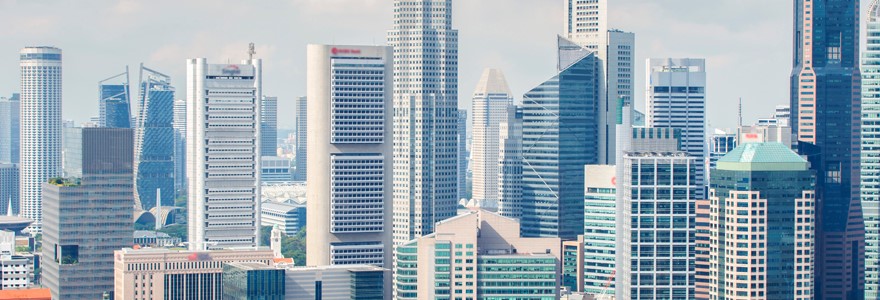More to expect in 2019 for Singapore’s medical sector?

2018 in a glance, the Asia Pacific (APAC) medical sector have experienced robust growth, supplemented with strong economic performance and great support from governments.
We have seen some of the largest mergers and acquisitions (M&A) globally, reduced taxes and even lowered drug prices which impacted regional medical hubs like Singapore. Spurred by an existing widespread aging population and sedentary lifestyles, this leads to an increased prevalence of chronic diseases where demand for top-notch medical services will continue to move the industry forward especially in Singapore.
As such, the recruitment market within the medical sector is also looking optimistic and here are some of the areas that have potential growth in 2019.
Greater integration of Artificial Intelligence (AI) and automation
Singapore takes pride in being a technology hub which constantly integrates itself with various industries including the health sector. Tech start-ups are currently working closely with health practitioners to integrate AI and automation in an attempt to bring about greater innovation of services and practices.
SGInnovate, established to help build 'technology-intensive' products borne out of science research, is currently supporting two start-ups that aim to use computer vision and AI to assist doctors in improving the accuracy of disease diagnosis. Best part of it – the technology is capable in carrying out the diagnosis on its own.
Reported by GovInsider, one of the two start-ups is developing “the stethoscope of the future”, whilst another is working on a solution that can predict the risk of relapse in stroke patients. Both of which would employ computer vision and AI that will assist medical practitioners with analyses accordingly and quickly with high accuracy.
Apart from the above, the advent of smart technologies have also led to smarter manufacturing of drugs. The precedence of personalised medicines is thus another big trend that will be changing the pharmaceutical sector.
Personalised Medicines (PMs) – a key focus area for 2019
“Personalised medicine is a move away from a ‘one size fits all’ approach to the treatment and care of patients with a particular condition, to one which uses new approaches to better manage patients’ health and targets therapies.” – National Health Service (NHS) England.
Across large pharmaceuticals in APAC, personalised medicines are a big focus this year given the proven effectiveness in cancer patients and patients suffering from rare genetic disorders. The fact that this approach could do away with one-size-fits-all approach leads to anticipations regarding higher treatment effectiveness.
However, to assist in the innovation of PMs, large pharmaceuticals will first need the support of medtech specialists to materialise their innovations. Cambridge Consultants is an example that provide the experience and insights necessary to transform ideas into fully realised products ready for manufacture in Singapore.
At the same time, Cambridge Consultants are able to better manage development risks which leads to increased confidence, reduced timelines and market diagnostic products such as PMs by complementing large pharmaceuticals’ expertise and experience.
At the moment, PMs will come in the form of customisation in prevention, prediction and treatments. It also a profit-making strategy for big pharmaceutical companies. Herceptin, the pioneer of PMs has experienced a good 15-year run, and remains Roche’s third best-selling drug.
South Korea is one of the big players in APAC, with Celltrion being domestically competitive and Pfizer, who is looking to compete globally. Other countries within APAC will need to push forth its R&D strategies for PM in order to become more competitive.
Medtech
With greater integration of AI automation alongside the prevalence of PMs, this has resulted in the growth of medtech as mentioned above and Asia is a region that provides a strong foundation for further growth within the digital realm. The growth of the internet and mobile-based technologies have been strongly encouraged especially with regulatory support from governments and the constant promotion of agile innovation.
This is most prevalent in Singapore where medtech firms and start-ups who plan to expand their business in the Asia region first establish their presence in this city-state. Fast-growing Irish medtech player Diaceutics is one of those who are looking to open a new regional hub in Singapore to increase exposure of patients in Asia to life-saving therapies. It is likely to build an initial team of six in Singapore that consists of lab directors, data scientists and sales personnel. This expansion is also further supported by the Singapore Economic Development Board (EDB).
Medtech start-ups are also flourishing in Singapore with the support of medtech incubator projects held here. A recent project was led by an investment from Accuron MedTech Group, where their ‘Technology Centre’ in Tuas provides incubator facilities and business services that will be made available to start-ups only.
To date, Accuron MedTech has done more than 10 strategic transactions, including investments in AWAK Technologies, Advent Access, and ASLAN Pharmaceuticals.
How is the job market looking like?
The Ministry of Health predicts that Singapore will need an additional 9000 healthcare workers by 2020 to support the sustainability of the above mentioned trends. However, training and developing more medical professionals would also need to be part of the solution for organisations apart from hiring new healthcare professionals.
2019 will be a good time for job seekers to understand the market’s demand for their skills and identify opportunities for potential development. It is important for candidates to take the initiative to identify any skills’ gaps and how they can acquire those in-demand skills to increase their level of competitiveness with other professionals in the market.
Digital related skills is likely to be the top priority as technology becomes increasingly integrated within the health and life sciences industry. And this is due to the increasing demand that has put a greater strain on medical resources. While R&D positions are currently filled by qualified resident talent in Singapore, a pipeline of talent shortage would compel organisations to hire outside of the local talent pool.
Why is Singapore an attractive location?
Not only dubbed as the regional hub for the medical and pharmaceutical industry, it is also titled the “Best Place for Expats to Work” on numerous media. The country is known for its high quality of living, efficient public infrastructure, favourable tax regimes and open, albeit regulated, immigration policies for global technical talent. All of these are major motivating factors for foreign talent to explore a career within the city-state.
How can Real Life Sciences help?
If your company is looking to break into the APAC talent pool to meet the talent skill gap, or if you are a candidate looking for a job in Singapore within the industry, do check out our LinkedIn page for more up to date insights on the pharmaceutical industry.




